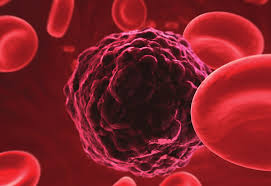Tumor marker is the substance found in the blood, urine, stool, tumor tissue, or other tissues or bodily fluids of some cancer patients. It is produced in incidence of cancer from cancer cells or other cells of the body and in certain benign (non-cancerous) conditions. Tumor markers serve for more than one purpose. A single tumor marker may be associated with one type of cancer or two or more types of cancers. But, not all the types of cancer have tumor markers. Some of the tumor markers currently used are,
- CA15-3 and CA27-29 for breast cancer
- CA19-9 is mainly used to detect pancreatic cancer, but also used for colorectal and other intestinal cancers
- CA-125 is mainly used to detect the ovarian cancer, and also used in detecting endometrial cancer, fallopian tube cancer, ling cancer, breast cancer, gastrointestinal cancer etc. Sometimes may also be used for endometriosis.
Tumor markers are used to detect, diagnose, and manage some types of cancer. Not always a particular type of cancer develops higher levels of tumor markers, but sometimes non-cancerous conditions can also lead to increased level of tumor markers. Elevated levels alone are not enough to diagnose cancer; it is combined with other tests like biopsies to monitor the given therapy and further to evaluate the need for the surgical interventions and development of recurrence. Tumor markers are detected by
- Immunologically- immuno histo chemistry, radio immune assay, enzyme-linked immune sorbent assay etc.
- Cytogenetic analysis- fluorescent in-situ hybridization.
- Genetic analysis- gel electrophoresis, DNA micro-array analysis etc.
Tumor markers are basically proteins or antigens or carbohydrates or hormones or enzymes in nature. Cancer researchers these days are focusing on proteomics, as major of the tumor markers are proteins. Recently, modified DNA and gene expressions are being used as tumor markers these days. For example, a trial NCI sponsored Trial Assigning IndividuaLlized Options for Treatment (Rx) or TAILORx is going on women.

